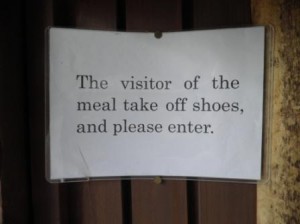Top small business ideas – money saving ideas
I would like to share with you some more top small business ideas. These are money saving ideas to keep in mind during your business strategy implementation phase:
- Negotiate rent free periods on leased premises
- Buy second hand furniture and equipment to start
- Prioritise your spending so that you put more into areas that the customer sees and less into areas that they don’t see.
- Review your need for advertising. It can take a long time to find out what works and what doesn’t and you can chew through a lot of money in the meantime. This is an area of enormous waste in many businesses, both small and large. Small businesses however have much less capacity to get it wrong.
- Advertising is generally passive and impersonal form of marketing. Try getting out there and becoming more interactive and personal.
- Use online printing services (e.g. Vistaprint) for stationary and marketing materials. It is great for testing campaigns because you can get small amounts of material at low cost and some products and services are free.
- When starting up your own business, shop around on your merchant services because you may find some big savings. A fraction of a percent on practically every sale will add up over time. Also make sure that you are charged a flat fee per transaction (rather than a percentage) on debit cards.
- During business strategy implementation, not everything goes according to plan. Start a ‘Grow from our Mistakes’ book where everything that goes wrong, that loses time or money, or causes customer inconvenience is recorded. Write a few lines about what happened and when; the estimated $ loss and how it was fixed. This serves two purposes. Mistakes are assigned a dollar value and when recorded, very few mistakes are ever repeated. The key to a successful Mistake Book is to keep it low key and not make it the subject of an inquisition, otherwise people will cover up mistakes. Over time, it can become a valuable book of solutions – i.e. this is the way things are done around here.
- If you are starting up your own business and you are looking for more top small business ideas then stay tuned.
If you seek startup advice or a powerful online business presence when starting up your own business visit http://garyweigh.com/business-startup
Until next time!
Gary








